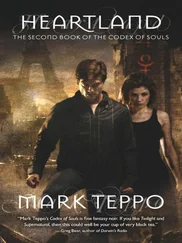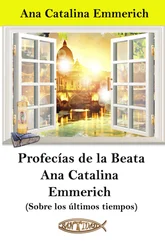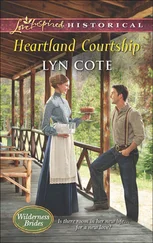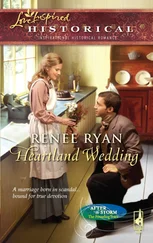We ate and drank everything on our table—and on Gargantua’s—to the last crumb and drop: our bird flesh and bones, caramelized fruit, flaming soup, the thick and velvety Cahors, and his sausages, boars, hams, eels, cheeses, and barrels of cheap wine. The table was a battlefield littered with bones, the white tablecloth soaked in Cahors blood. I wished McCabe were the size of a quail, so I could snap her neck, dismember her body with my own hands, eat her meager flesh, and hide her skeleton in this miniature Antietam. The perfect, effortless crime. But McCabe was a giant when measured against the average quail, and even compared to me, slowly shrinking in my wheelchair as my inactive muscles and bones atrophied.
My eyelids felt heavy. When I woke up, my forehead was encrusted with quail bone shards. I must have dropped it on the table with a loud thump, like a reverse wax seal. McCabe was standing next to me with a glass of water. I drank it. After thanking her for the pleasant evening and wishing her a good night’s sleep, I wheeled myself into the bathroom to empty my painfully full bladder and pick the bone shards off my forehead. When I emerged, ten minutes later, all signs of our banquet were gone. The dining table was, once more, the Judge’s desk. All lights were off, except for a table lamp at the far corner. I was alone. As I was wheeling myself to the bedroom, I heard a rustle. McCabe was sitting in the dark, in her music-listening chair. It was past one in the morning. I was exhausted. I should have refused to choose music for her that night.
We ended up listening to César Franck’s Symphony in D minor . I had been tempted to play it for her before, but always held back at the last minute. She was not ready for it, I thought. The first time was precious. Unrepeatable. What if she just heard a jumble of sounds, but not music? Worse, what if she tried to make sense of it with the only building blocks she had (implanted in her brain via countless elevator, movie, TV, Top 40 and airplane exposures) and re-composed Franck’s wrenchingly sublime cry into a cheap, weepy soundtrack? I could not risk that. This was music I had listened to hundreds of times since I first found it at the Elmira public library, at the age of fifteen, long before Mrs. Crandall dreamt of marrying Mr. Crandall and moving here from… where? I had sensed, obscurely, from the first time I saw her, that Mrs. Crandall was not an Elmiran by birth. Only now, while fingering the archaic Franck CD, did my mind gel around the fact of Mrs. Crandall’s questionable origins. Questionable not because she was from somewhere else, but because she was insufficiently so.
While pretending not to be impressed, Elmira secretly embraced with pride those it considered the true foreigners in their midst—from Chicago, New York, Boston, and, when it existed, St. Louis—all wealthy, white, and inaccessible. That’s how Elmira dealt with the truly foreign, whether human or meteorological (such as the news that Elmira would become a new Atlantis). Spics, niggers, Chinks, wogs, etc., were not foreign, but alien. They need not be discussed here.
But beyond the truly foreign and the alien lay the disdained: the small towns on the far edges of the county whose inhabitants Elmira classified in two distinct categories: the unwashed and semiliterate who liked it there (and which Elmira, while avoiding them in person, endowed from a distance with all manner of folkloric virtues), and those who dreamt of becoming Elmirans. Mrs. Crandall pertained to this last category, as revealed by her rebellious buttocks. Her rise to more or less full Elmiran-hood must have been arduous and dangerous. She began acquiring an Amazonian grandeur in my mind at that moment, a new Liberty Leading the People. Transfixed by the image of Mrs. Crandall, splendidly barefoot and bare-breasted, charging forward over a barricade and a pile of heroic corpses, I recklessly put the Franck CD in the player.
The first chords brought me back to the room. McCabe was staring at me, but quickly looked away. I must ask her what Mrs. Crandall was doing in our kitchen, I thought as I let the moment slip away. Then the music swept into the room, dwarfing us, taking control. Free will is a joke, little human quail, it said. Before surrendering, I managed to position my wheelchair across from McCabe. Those were our usual seats, at opposite angles, separated by a red oriental rug and a low table where I kept the books I was reading, now all from the Judge’s bookshelves (I had not asked McCabe to get me books from the public library, wanting to keep her out of the public eye). The books between us were old and opulently bound, books I would never have read on my own, or even held in my hands, such as the account of Caesar’s conquest of Gaul, and Thucydides’ history of the Peloponnesian War.
When the music stopped, McCabe’s eyes were closed. I could not tell if she was awake or sleeping. “What do you think?” I said, and then, when she did not answer: “Did you like it?” She opened her eyes. She looked tired, or sick. I offered her a glass of water. She declined it. In all my preparations to get rid of her, it had never crossed my mind that McCabe could get sick, could die a natural death in a hospital. “It’s too intimate,” she finally said. I saw the intimacy of her naked, lifeless body under the hospital sheets, with only her hands and face uncovered. “That music,” her voice echoed, as if I were waking up from anesthesia. “It’s too intimate.”
Shame does make your face burn. Mine did. I had been caught crossing a line I had not seen. I apologized repeatedly until McCabe’s calm gaze stopped me. Then I apologized for apologizing. I did not tell her the one thing that might explain my faux pas, and at the same time render it more intolerable: César Franck’s symphony had been my secret soundtrack for Bebe, as it had been, earlier, for Glorita. Telling her would have been “too intimate,” nauseatingly icky, and turned me into a creep—which I am not, in spite of everything I have confessed so far. More importantly, it would have discredited me in her eyes. Turning this sublime monument of the Western musical canon into a private, jerk-off soundtrack was bad taste of the worst order, the kind that makes white people laugh, and spics cry, and thus confirms the subhuman nature of the latter along with their propensity to confuse emotional bulimia with culture.
There was one last, dishonorable reason for not having told McCabe all about César Franck’s musica interrupta : I was afraid she would beat me up. Old McCabe could still be lurking somewhere inside this pale creature. The bridge of my nose had thickened permanently after Old McCabe had punched me, the day after our arrival. It was a subtle change, probably invisible to all but me, for whom it was (and still is, even in my terminally disembodied state) a disfigurement. Every day I checked my nose in the mirror a dozen times, repulsed at the new Hottentot bone with its tiny incongruous bump, until little by little, I forgot the bridge of my original nose, narrow, straight, perfect. A Madison Avenue plastic surgeon I consulted under an alias, by phone, said that to restore my nose to its original shape he needed a clear picture of it, in profile. I did not have one. The second-best option was to find my birth nose among the three hundred and forty-seven in a catalogue he sent. Not only I did not find it, but hours of studying hundreds of similar noses destroyed the memory of mine.
Underneath every shameful secret there always lies another. While César Franck’s Symphony was my secret soundtrack, there was another behind that, even more secret, one that I had denied all my life. It was an old song that my grandmother first heard as a child in La Esperanza, a syrupy, heart-wrenching bolero. I listened to it as much as to the Franck piece, and for much the same reason, though at the time, I never allowed myself to think of Glorita, or Bebe, or anyone or anything else while I did. I emptied my heart and my mind first, as they say you must do when listening to Bach’s partitas, to better appreciate their architecture.
Читать дальше












